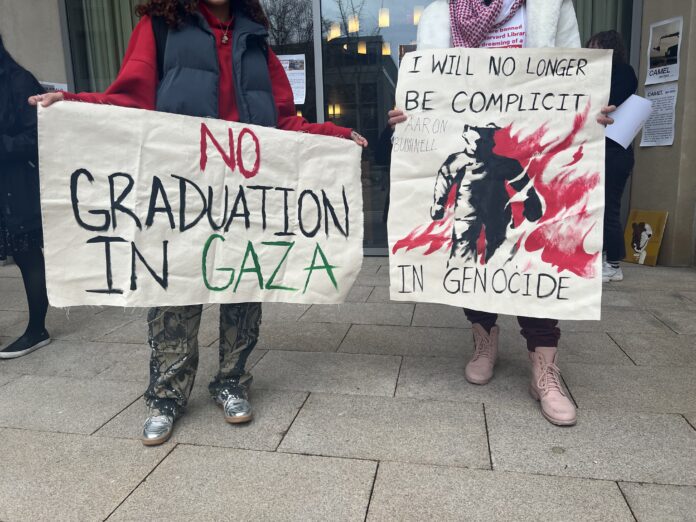
Author’s Note: The student attendees are identified by initials to preserve anonymity.
Harvard Law students gathered this Wednesday, March 5, 2025, at the Crossroads to protest what they perceive as a rise in fascist sentiment worldwide. Students voiced their concerns about both domestic and international events, ranging from the erosion of democratic structures by the current United States administration to the alleged continuing genocide of Palestinians in Gaza and the West Bank.
The event was publicized to be at Haas Lounge, colloquially known as Belinda Hall, from 12:20 PM to 1:00 PM. At 11:14 AM, roughly an hour prior to the event’s planned start time, the Dean of Students sent an email titled “Campus Use Rules Reminder” to the student body. In the email, Deans Stephen L. Ball, J.D. ’10, and Monica E. Monroe stated that “the Haas Lounge in WCC is not available to be reserved or used for group events.” Shortly thereafter, the school administration sealed all entrances to Belinda Hall. Signs were placed nearby, which stated “Haas Lounge Temporarily Closed,” and listed the following designated protest areas: “The Crossroads, Holmes Field, The Belinda Sutton Quadrangle, Pound 100.”
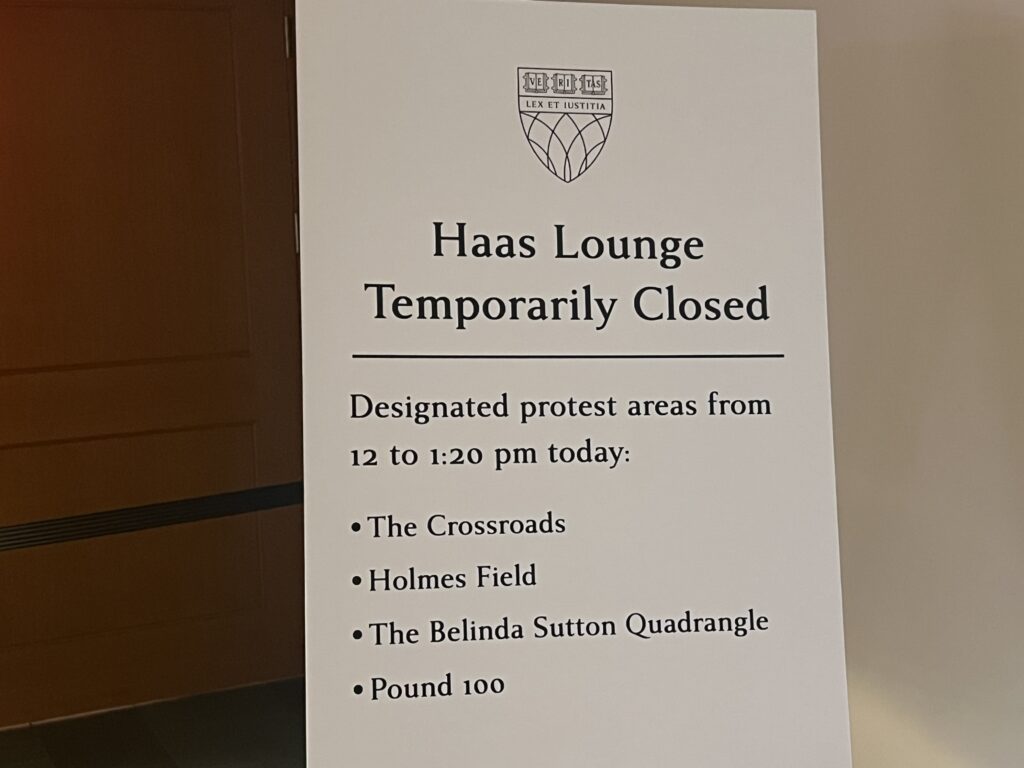
Unable to access the intended space, the students moved to the Crossroads. After moving outdoors, attendee C.B., HLS ‘25, described the event by saying, “We are having to pivot a little bit, so now it’s one part vigil, one part rally, and one part looking in, literally, to Belinda Hall, a space that should be for students.”
Art and infographics were taped against the windows that peer into Belinda Hall, containing images and texts detailing, among other things, past student actions at Harvard Law School, historical movements against fascism and racism, the Trump Administration’s anti-LGBTQ+ and anti-reproductive health policies, and the destruction of Gaza over the past year and a half.
Attendees spoke up to express their frustrations with these matters, as well as their opposition to Harvard University’s complicity in financially supporting many of these actions and policies through its endowment. Students also expressed their concerns with the Law School administration’s treatment of campus protest and free speech, pointing to the administration’s act of sealing Belinda Hall in anticipation of the event.
“[Harvard University] didn’t care about the pleas and the cries of their students who are black and brown and Palestinian and disabled and immigrants.” said attendee J.M., HLS ‘26, “This is a university that cut its admission of black students by fifty percent this year.”
It’s one part vigil, one part rally, and one part looking in, literally, to Belinda Hall, a space that should be for students.
Between speeches, attendees and onlookers were able to peruse the art and infographics. Students also gathered to collectively read aloud the poem “If I Must Die,” by Refaat Alareer, a Palestinian author who was killed in an Israeli airstrike on December 7, 2023. A six minute moment of silence was held for the over 60,000 Palestinians who have died since October 2023.
A passerby to the event, Ofri (last name not disclosed), who was visiting Harvard University as a volunteer at DiploAct, an Israeli diplomacy-focused organization, said of the event, “We hope that someday we can find a way toward decent dialogue and conversation.”
Another passerby, Gidon Ben Rivka, noted a lack of mention regarding other alleged parties that have contributed to the ongoing conflict in Gaza, stating, “Something that I’ve noticed, at really every rally that I’ve been here, is there’s no mention of Hamas and there’s no mention of the Palestinian Authority, who clearly cause a great deal of suffering to the Palestinian people.”
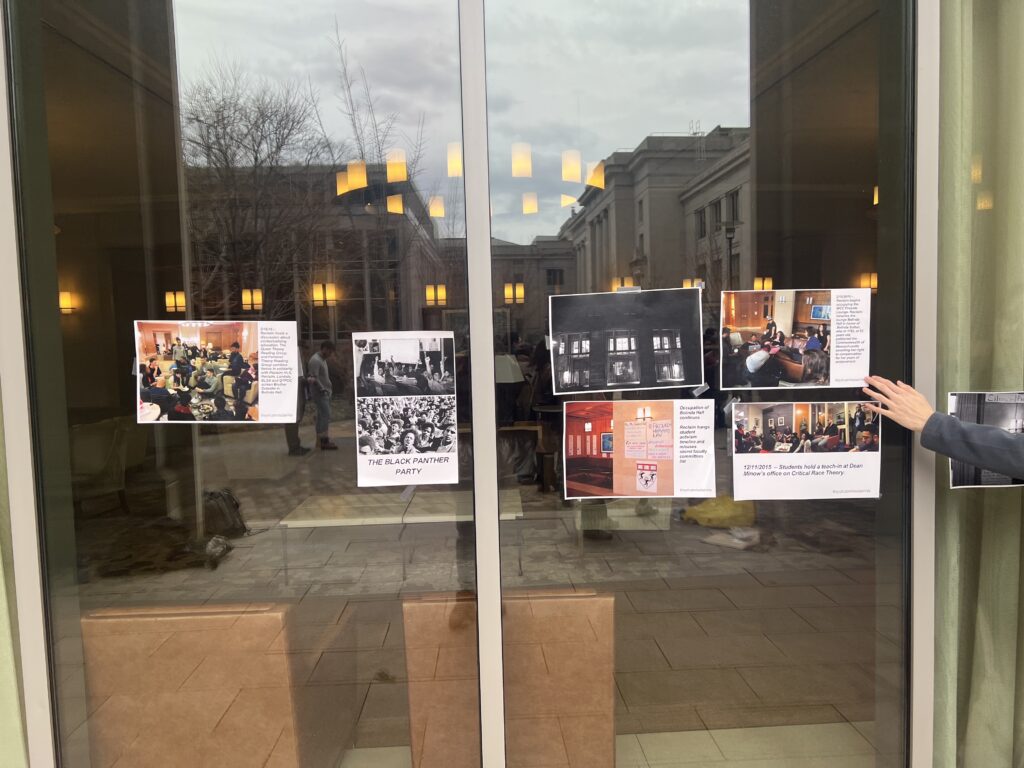
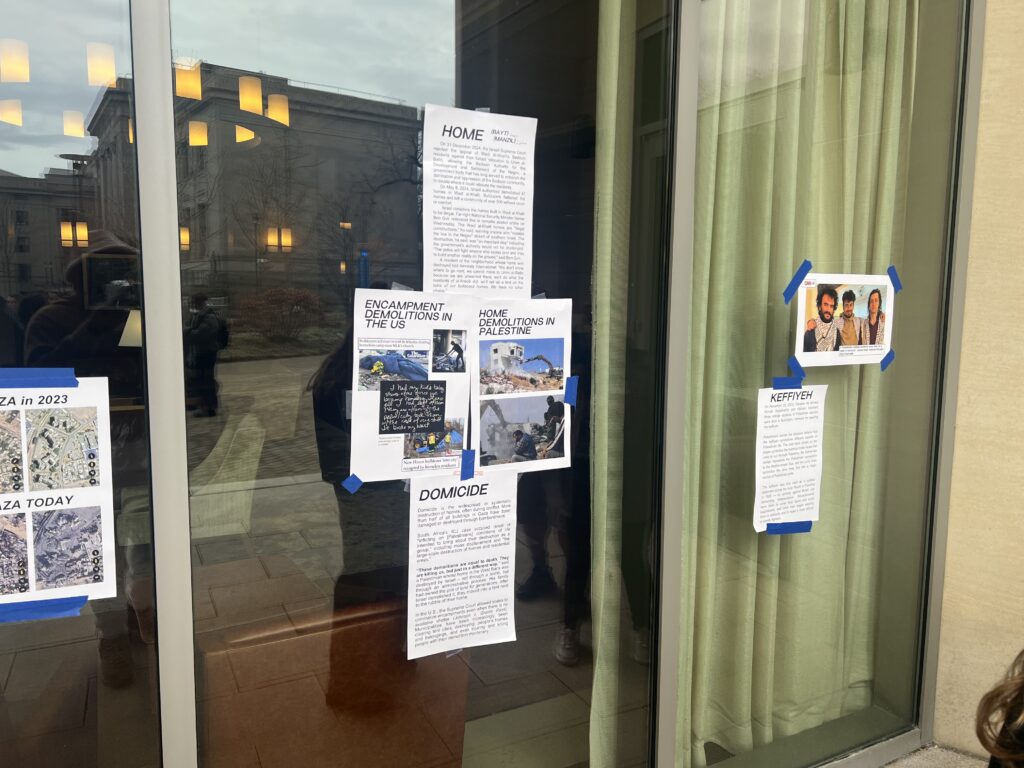
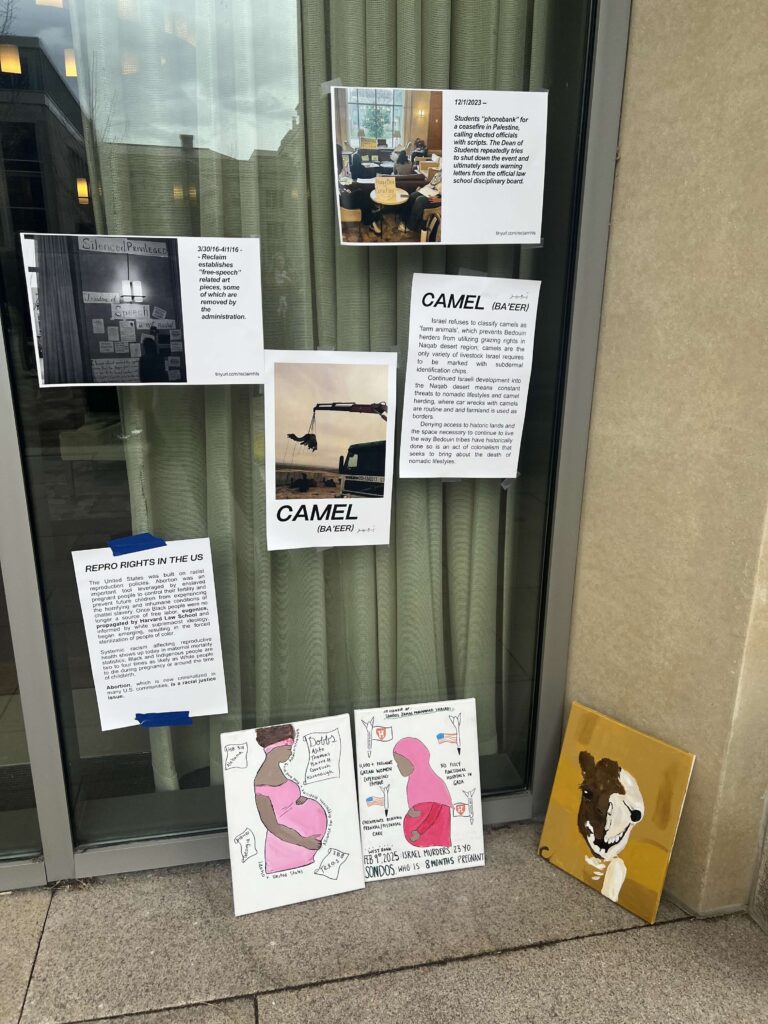
In total, the event was attended by around ninety students. It concluded with a collective chant by the attendees of a quote from Assata Shakur, a member of the Black Liberation Army. The chant expressed the students’ desire and commitment to engage in this and other forms of political and social activism.
In reflecting on the event, attendee E.D., HLS ‘27, stated, “We were moved out here, and ended up having a wonderful event of community, of recognizing the shared connections between Palestinian liberation, black liberation, queer liberation.”

